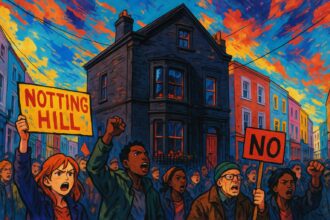As the UK government urges the House of Lords to approve the Safety of Rwanda Bill for deporting asylum seekers, across the pond, Mexico opposes Texas’ severe immigration law, SB4, marking a contentious period in immigration policy in both the UK and US.
In the UK, the government is engaged in a legislative battle over the Safety of Rwanda Bill, with Home Secretary James Cleverly appealing to the House of Lords to pass the bill in its present state. The bill’s objective is to classify Rwanda as a safe destination for deporting asylum seekers attempting to enter the UK through the English Channel. This move has seen resistance, especially from Labour and Green Party members, questioning its effectiveness and humanity. Cleverly has accused the Labour party of obstructing the bill, which is central to the government’s immigration policy aimed at deterring illegal migration. The ongoing parliamentary friction comes amid efforts by the then-Prime Minister, Boris Johnson, to implement the deportation flights to Rwanda by spring, a plan now facing potential delays due to legislative amendments and opposition.
Across the Atlantic, Mexico has voiced strong opposition against Texas’ stringent new immigration law, SB4. This law authorizes Texas police to detain people suspected of illegal border crossing, with penalties reaching up to 20 years in prison. The Biden administration has contested SB4, labeling it unconstitutional and a rights violation for the significant Mexican-origin population in Texas. Mexico’s refusal to accept deportees under SB4 signals diplomatic tensions between the two nations, with the law criticized as “anti-immigrant.” Despite the controversy, Texas Governor Greg Abbott welcomed the US Supreme Court’s decision to let SB4 proceed, marking a significant moment in the ongoing debate over immigration policies and border control between the US and Mexico. The law’s fate remains in judicial review, with potential implications for bilateral relations and the broader discourse on immigration in North America.













